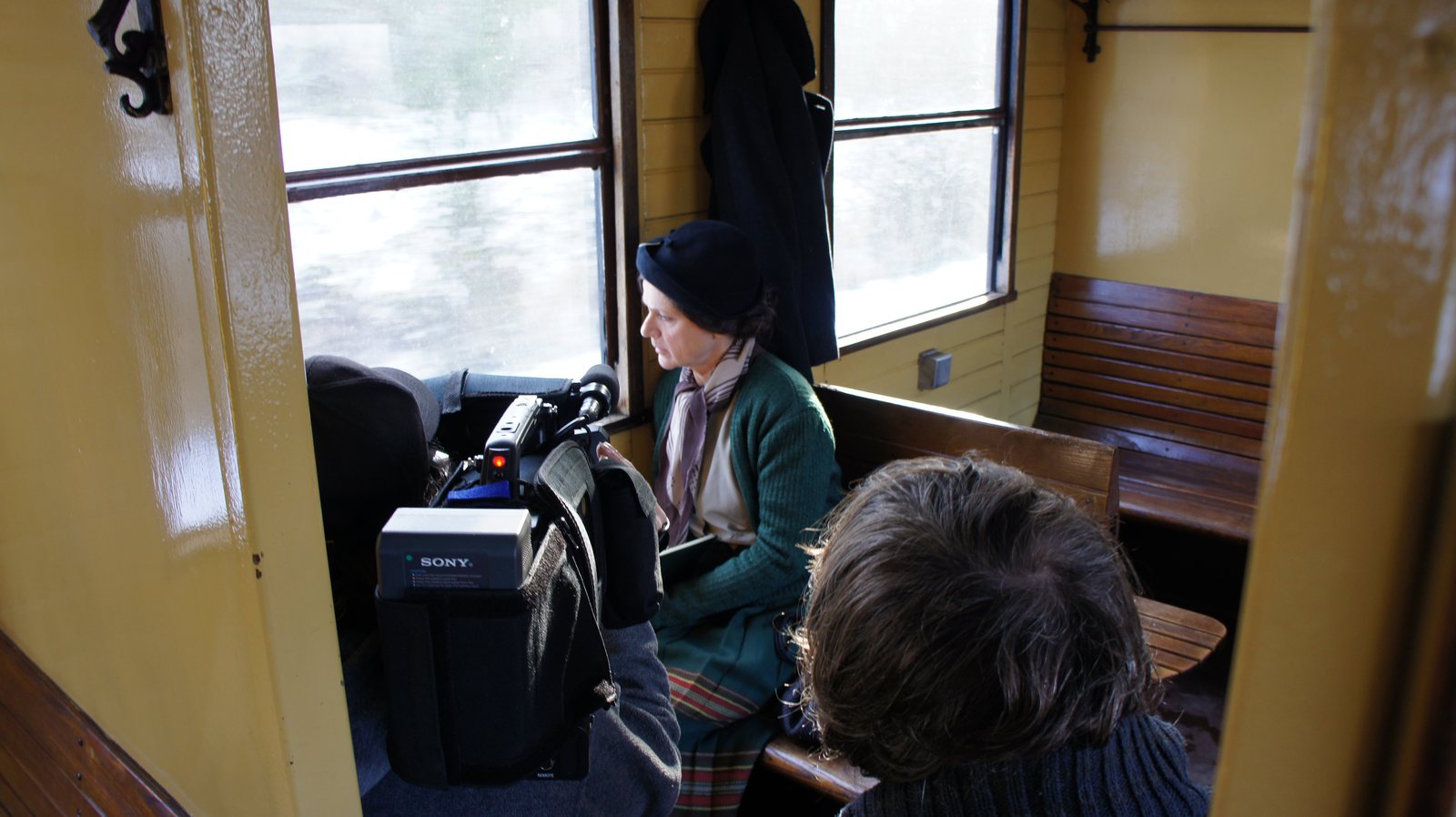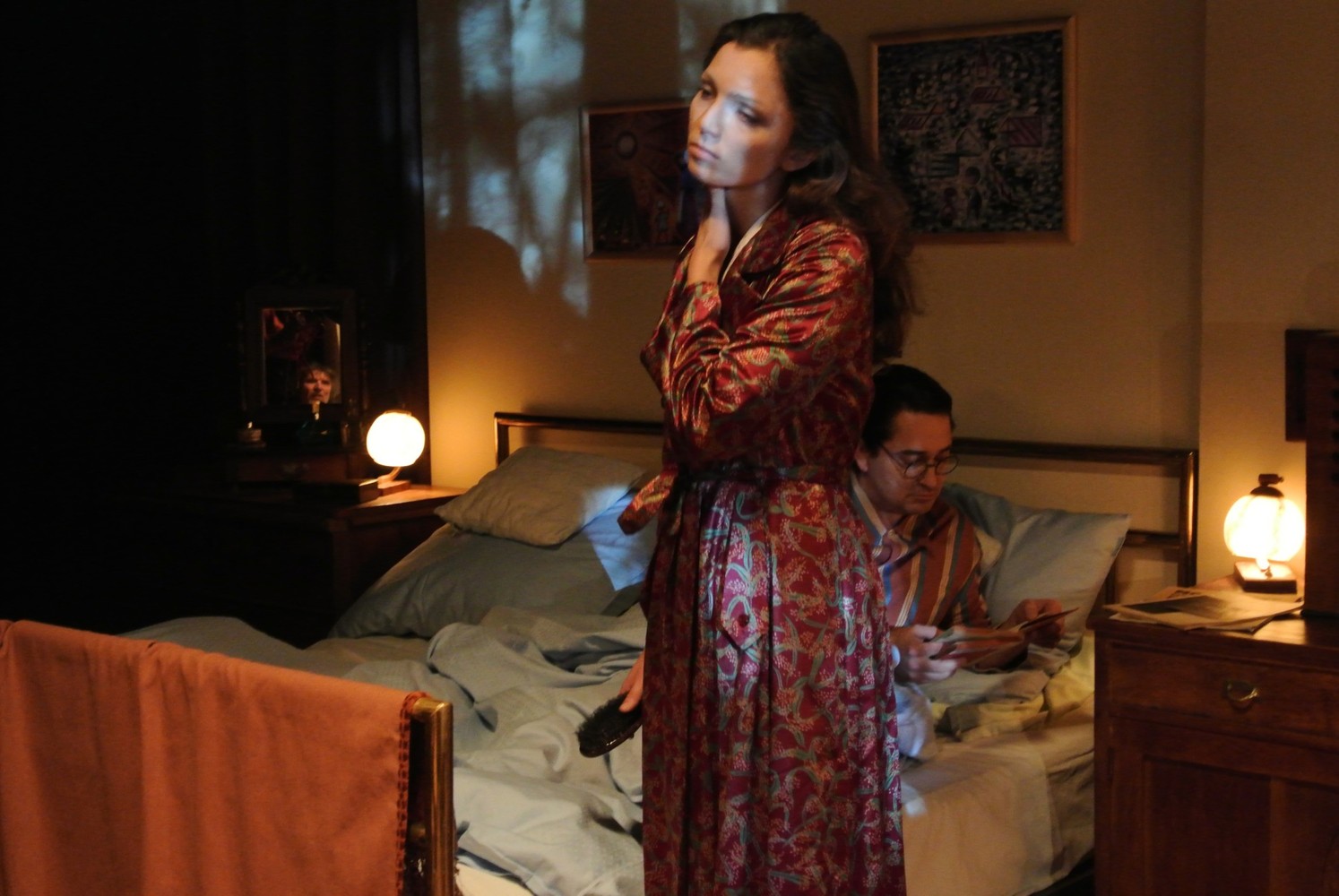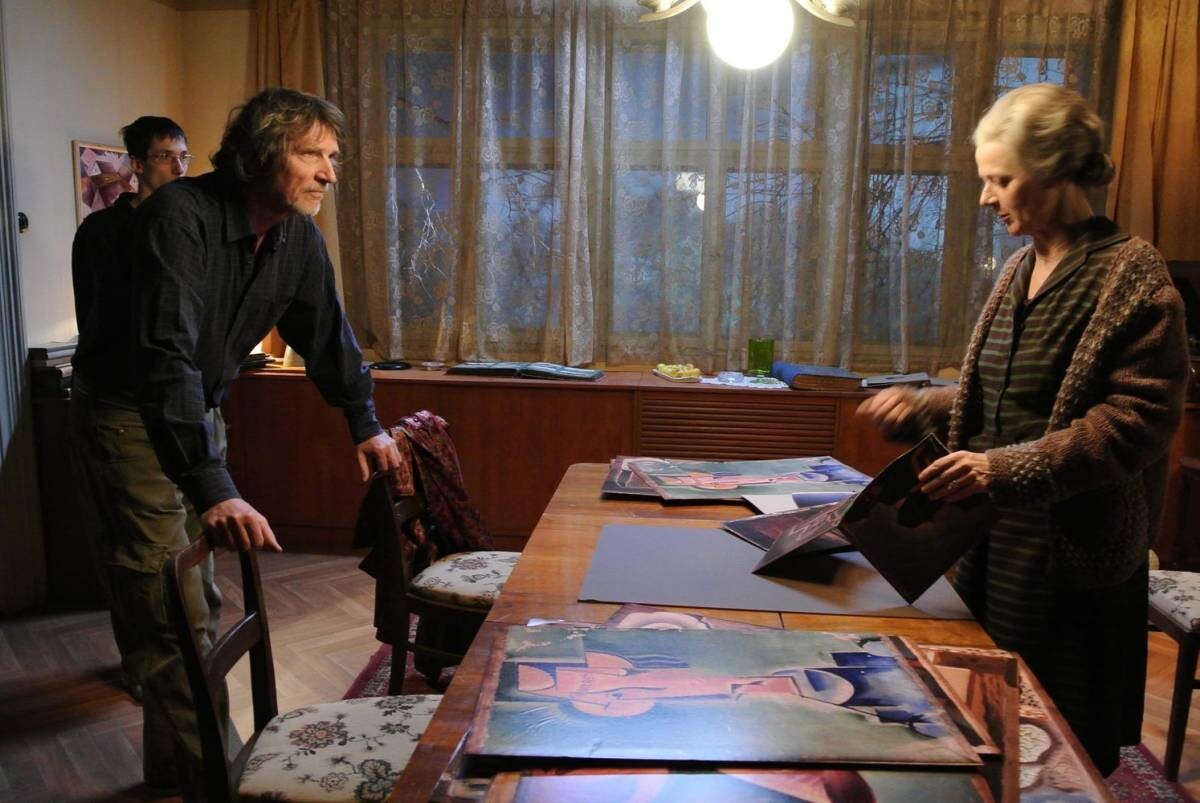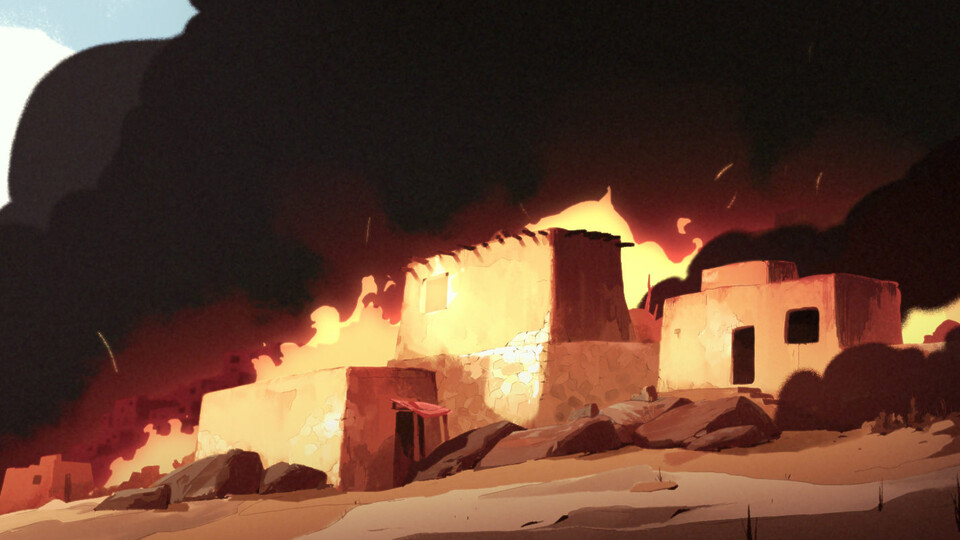Josef Čapek Lost in 45
Fragments of the image of Mr. Myself appearing during the title sequence of the documentary Lost in 45 indicate that the film’s focus will be on Josef Čapek, an artist, to whom Josef Císařovský paid tribute in two of his previous films, Josef Čapek’s Eternal Pilgrimage (2010) and Slovakia Seen by the Čapek Brothers (2010). Mr. Myself is followed by a series of lyrical scenes shown on the backdrop of a song about a walk along a sea shore. The last verse of the song – “and when they started to laugh, the sun rose high in the sky” – is then impressively matched with the motif of Čapek’s oil paintings, after which we enter Čapek’s studio lit with the rays of the setting sun, in the company of Jaroslav Dostál.
I was very pleased that Císařovský captured one of the last testimonies by Čapek’s son-in-law, Jaroslav Dostál, an honest and loyal administrator of the family estate. However, my initial excitement was soon overridden by mixed feelings: from the very start, it is very difficult to tell what message is this documentary film – based on the book of memoirs by Jarmila Čapková, Memories (Torst, Prague 1998) – supposed to convey.
Most of the film’s screen time is dedicated to Jarmila’s trips to Germany in the years 1945–47. Císařovský follows her route with his camera, recording photographic documentary footage of a war-torn land, the current reality in the country as well as memories of employees of hospitals, which, however, have no direct relation to Josef or Jarmila Čapek, only adding colour to the atmosphere of the period. If the director’s point was to shed light on the circumstances of Čapek’s death or important details in the CV of the Čapeks, the question remains, why he did not seek advice from Jiří Opelík, the most knowledgeable expert when it comes to Josef Čapek’s life and works, and an editor of Jarmila’s Memories.
It is not even clear what creative strategy Císařovský follows: whether he is trying to present so-far unpublished facts or re-enact the events recorded by Jarmila Čapková in her memoirs, to interpret them emotionally and make their atmosphere felt in the film. It seems that his ambitiously composed poetic and dramatic cycle of film images seeks to achieve both of these goals. However, in terms of research on Čapek’s work and life, his concept proves rather problematic. While attempting to attain the maximum possible emotional impact, Císařovský’s adaptation of the selected literary source is rather predictable, moreover, his approach seems, at points, arbitrary and irresponsible.

Lost in 45
What I object to the most is that he forces the exceptional life story of Josef and Jarmila into a trivial pattern, selecting likeable motifs from the published memories recorded by Čapek’s wife, assembling them into a plot commonplace in romantic fiction: nostalgic memories of their early romance – everyday trouble of a married couple – painful search for a lost husband and a belated appreciation associated with the pangs of conscience. These three story (and time) lines are intertwined in a dynamic collage of both documentary and live shots, the composition of which is based on alternating emotional contrasts and parallels, sometimes too ostentatious and ingratiating.
I believe that the fundamental weakness, questioning the documentary credibility of the film and its creative impression, lies in the staged scenes representing episodes described or touched upon by Jarmila in her memoirs. Císařovský intentionally resigns on rendering a faithful film adaptation of the selected text excerpts, only accompanying them with somewhat dully stylized “animated images”, resembling mechanical wax figures in a fabricated stage set rather than a faithful re-enactment of real action. For example, notes depicting Jarmila’s troublesome travels are accompanied with shots of a neat old lady on a train, wearing a well-ironed scarf and spotlessly clean shoes.
Moreover, the re-enacted scenes often focus on marginal details, such as the embarrassingly pathetic episode when Jarmila desperately counts the remaining coins, while the voice-over speaks about the birth of their daughter Alenka. As a result, the film comes over as a kitschy colour print, lacking both the value of a painting, and the factual accuracy of a photograph.
Undue attention is paid to the temporary crisis of the married couple, which is not mentioned in the final version of the Memories, and it is only reflected in Jarmila’s diaries from the years 1932–38. In one of the authentic shots, Jaroslav Dostál sadly comments: “And now, when consulting these diaries, I have the feeling that Alenka would not have wanted such intimate details to be published…” Josef Císařovský does not hesitate to reveal these intimacies and unscrupulously transforms Jarmila’s records into schematically staged etudes. In a scene illustrating her complaint: “… and I am also thinking, when falling asleep next to you, with your back turned to me, and you don’t turn around even when I bid you goodnight, should I display a bit of a feminine affection? But how could I: you keep on banishing me the whole evening, even from the most ordinary marital pleasure…“, he is not reluctant to demonstrate how an evening in the couple’s bedroom might have looked.
In this “bedroom episode”, Císařovský at least uses an authentic quotation from Jarmila’s text. But what is worse – the film makes it possible to “re-enact” even a situation that never occurred: In a striped prison apparel (but with plump cheeks and smooth hands), Josef is lying on a bunk bed in a concentration camp, talking to himself, paraphrasing a couple of Jarmila’s notes selected from several different texts, dating to the middle of 1930s: “Not a day passes without thinking of Karel. I was always telling him: don’t write literature, write a diary. That’s a literary craft worthy of admiration! But that was a vicious circle in which he got lost. In his own element of jovial humour. I was always writing with him. In my thoughts. Shade of Fern, A Country of Many Names, A Limping Pilgrim…, all of these were my inner polemic with my brother, a protest against the lightness of his quill. And this was exactly why I loved him. I never managed to achieve what he did.” Unfortunately, this scene is very far from the truth. I find it unacceptable for an author of what is to be a documentary film to let Čapek utter important, yet somewhat inauthentic statements, surrounding him with ridiculous props that are entirely ignorant of the actual living conditions in concentration camps. The person we see is not an anguished prisoner in a house packed with emaciated human wrecks but a well-fed gentleman on holiday, relaxing and contemplating on his bunk bed.

Lost in 45
In the context of the research into the works of Čapek’s brothers, it must be noted that in late 1930s, Josef Čapek had certain objections to his brother’s style of prose, which, however, was no longer the case in the war years, the tone of his poems written in a concentration camp and dedicated to Karel was entirely different. These words made up by Císařovský grossly deform the reality which should be portrayed accurately. The viewers cannot know that this sad confession – “I never managed to achieve what he did” – has never been found in any surviving texts by Josef Čapek. The interpretation of the relationship between the Čapek brothers is one of the popular topics addressed in media and, since the time of the post-war avant-garde, it is a recurring trend to give preference to one or the other and to confront their personalities. This time, Císařovský comes up with a false argument.
His intention might have been to blur the genre barriers between fiction and documentary film, however, this attempt has not proven successful. His creative ambition has prevailed over his duty to accurately depict the documented reality, and the result fails to pass both as an autonomous artistic statement, or an honest and authentic testimony.
Translated by Bára Rozkošná


